Conflict zones: Intentions vs. outcome
Sreeram Chaulia, Vice Dean of the Jindal School of International Affairs, talks to Gateway House’s Samyukta Lakshman about his new book titled, "International Organisations and Civilian Protection".
Sreeram Chaulia, Vice Dean of the Jindal School of International Affairs, talks to Gateway House’s Samyukta Lakshman about his new book titled, "International Organisations and Civilian Protection".
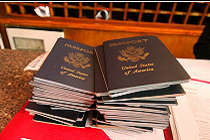 Courtesy: FourthFloor/Flickr
Courtesy: FourthFloor/Flickr
Despite their economic downturns, domestic tensions keep developed countries from embracing the revitalizing potential of foreign workers. Ambassador Neelam Deo argues that India should continue to leverage its history of diversity and capitalize on a world more open to the free flow of goods and services.
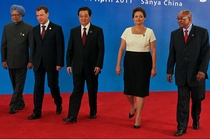 Courtesy: dilmarousseff/Flickr
Courtesy: dilmarousseff/Flickr
As Europe stands united in its support for France's Finance Minister Christine Lagarde as a candidate to head the International Monetary Fund, many have begun to question if BRICS is truly an effective and united bloc. Will they be able to put forth a candidate all emerging countries can support?
 Courtesy: WorldEconomicForum/Flickr
Courtesy: WorldEconomicForum/Flickr
With the post for the head of the International Monetary Fund up for grabs, the emerging market countries are yet to unite and provide a suitable candidate who receives formidable support for his or her candidature. China, however, may boldly question the status quo and step ahead.
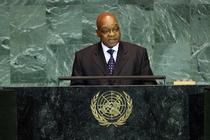 Courtesy: UNPhoto/MarcoCastro
Courtesy: UNPhoto/MarcoCastro
As the newest entrant of the BRICS group, South Africa's unpredictability in upholding the human rights dimension of its foreign policy agenda, by its stance to impose a ‘no fly zone’ over Libya, has brought about an incoherency between the BRIC countries and South Africa.
Frank Wisner, the legendary US diplomat who was not only President Barack Obama's special envoy to Egypt but also a former ambassador to India, discusses the outlook for Egypt, resolving the mayhem in the Middle East and India-Pakistan relations in a Gateway House exclusive.
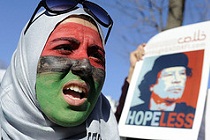 Courtesy: CrethiPlethi/Flickr
Courtesy: CrethiPlethi/Flickr
As the Arab world reinvents itself in real time, the rest of the world must begin to understand the region as something more than a source for oil and a market for armaments and consumer goods.
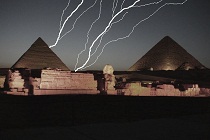 Courtesy: NinaAldinThune/Wikimedia
Courtesy: NinaAldinThune/Wikimedia
There are more than Western interests at play in Egypt. The other catalysts for the unrest are a combination of Iranian adventures, hypocritical policies of West Asian regimes and resurgent commodity speculation in western markets, triggering a rise in prices of basic items in emerging markets
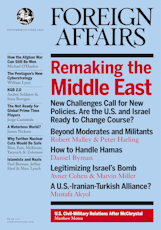 Courtesy:
Courtesy:
The world’s leading international institutions may be outmoded, but Brazil, China, India, and South Africa are not ready to join the helm. Their shaky commitment to democracy, human rights, nuclear nonproliferation, and environmental protection would only weaken the international system’s core values.